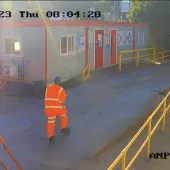Devon recycling company prosecuted over death of worker

Firm fined £50,000 for serious safety breaches after employee thrown from dumper truck and killed
A RECYCLING company in South Devon has been sentenced for serious safety breaches following an incident in which a worker was killed after apparently being thrown from a six-tonne dumper truck.
Thirty-year-old Ben Sewell was found lying on his back on a bank a few metres behind the overturned dumper, on a sloping dirt track at Dittisham Recycling Centre Ltd, near Dartmouth, on 21 September 2012. He was pronounced dead at the scene.
The Health and Safety Executive (HSE) prosecuted the firm after an investigation discovered that Mr Sewell had not been properly trained by his employer to use the vehicle. The company had also failed to properly enforce the wearing of seat belts fitted to the dumpers used by Mr Sewell and other staff.
Plymouth Crown Court heard that the HSE’s investigation had uncovered a catalogue of dangers at the Dittisham Recycling site and that a total of eight Prohibition Notices had been served on the company preventing its use of various plant and machinery until adequate safety measures were taken.
The court was told that on the day of the incident Mr Sewell was using the dumper to take loads of oversized material from one part of the centre to another. The extensive site sits in a steeply sided valley. At one point he stopped at the top of the site to deal with a customer before setting off in his empty dumper down to the bottom of the site along the main dirt track.
The customer noted the truck was going at speed and that Mr Sewell was not wearing the seat belt. Minutes later, a colleague at the bottom of the site noticed smoke rising from a section of the dirt track above where he was working and he could just see the overturned dumper. He rushed to the scene and found Ben lying on his back at the side of the track some 10m from the dumper truck. Paramedics later confirmed he had been fatally injured.
The HSE found a series of safety failings with other dumper trucks, a tracked excavator and crushing and screening machinery. Tipping operations were also unsafe and some of the roadways around the site were inadequately protected. Inspectors issued two Improvement Notices requiring safety changes to the site’s roadways and tipping safety measures.
Having taken into account the current financial circumstances of the defendant company, the judge ordered Dittisham Recycling to pay a fine of £50,000 together with £25,000 towards the prosecutions costs (all payable over the next five years) for breaching Section 2(1) of the Health and Safety at Work etc Act 1974. The company had pleaded guilty at an earlier hearing.
After the case, HSE inspector David Cory said: ‘Ben’s death was entirely preventable. The lack of competent training, poor monitoring and inadequate supervision of staff added up to a fatal combination. Although there were no witnesses, his injuries were consistent with being thrown from the truck.
‘Dumper trucks are inherently unstable and dangerous machines to operate and the company had not enforced the necessary rules to make sure they were driven safely, including the full and proper use of the seat lap belts.
‘If a vehicle has a roll-over bar fitted to it the driver will also always need to use the seat belt – the safest place in an overturn is securely in the driver’s seat, protected by the roll-over bar and seat belt. Many people think they can jump clear but this is wrong. Roll overs happen just too fast and they get injured or killed by the vehicle as they try to jump clear.
‘Dittisham Recycling knew about the importance of having competently trained staff. It had used an external trainer for staff in the past but had not done so for Ben or one of his colleagues at the time. Instead, they relied upon in-house verbal and basic hands-on training which was inadequate.
‘Had Dittisham Recycling ensured staff were sufficiently trained, equipment was properly used and the legally required and, frankly, common-sense safety rules enforced – especially for dumpers – then Mr Sewell would most likely still be alive.’









